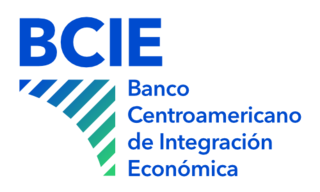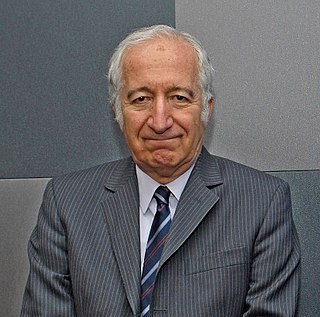Related Research Articles

The University for Peace (UPEACE) is an intergovernmental organization with university status, established by treaty at the United Nations General Assembly in 1980 and having its main campus in Costa Rica. Its stated mission is "to provide humanity with an international institution of higher education for peace with the aim of promoting among all human beings the spirit of understanding, tolerance and peaceful coexistence, to stimulate cooperation among peoples and to help lessen obstacles and threats to world peace and progress, in keeping with the noble aspirations proclaimed in the Charter of the United Nations."

Ecotourism is a form of tourism involving responsible travel to natural areas, conserving the environment, and improving the well-being of the local people. Its purpose may be to educate the traveler, to provide funds for ecological conservation, to directly benefit the economic development and political empowerment of local communities, or to foster respect for different cultures and for human rights. Since the 1980s, ecotourism has been considered a critical endeavor by environmentalists, so that future generations may experience destinations relatively untouched by human intervention. Ecotourism may focus on educating travelers on local environments and natural surroundings with an eye to ecological conservation. Some include in the definition of ecotourism the effort to produce economic opportunities that make conservation of natural resources financially possible.

Economic geography is the subfield of human geography which studies economic activity and factors affecting them. It can also be considered a subfield or method in economics. There are four branches of economic geography. There is, primary sector, Secondary sector, Tertiary sector, & Quaternary sector.

The Inter-American Development Bank is the largest source of development financing for Latin America and the Caribbean. Established in 1959, the IDB supports Latin American and Caribbean economic development, social development and regional integration by lending to governments and government agencies, including State corporations.

José María Figueres Olsen is a Costa Rican businessman and politician. After he left the presidency of Costa Rica in 1998, Figueres has also been involved in global issues such as climate change, sustainable development, and technology. He started his career as an engineer working in agribusiness. After a decade, he entered public service as Minister of Foreign Trade and then Minister of Agriculture. In 1994, he was elected President of Costa Rica, as the nation's youngest elected president of the 20th century.

The Central American Bank for Economic Integration - CABEI was founded in 1960. It is an international multilateral development financial institution. Its resources are invested in projects that foster development to reduce poverty and inequality; strengthen regional integration and the competitive insertion of its member countries in the global economy; providing special attention to environmental sustainability. Its headquarters are in Tegucigalpa (Honduras) and has regional offices in Guatemala, Honduras, El Salvador, Nicaragua, Costa Rica and Panama.
The Deutsche Gesellschaft für Internationale Zusammenarbeit (GIZ) GmbH, often shortened to simply GIZ, is a German development agency headquartered in Bonn and Eschborn that provides services in the field of international development cooperation and international education work. GIZ's main commissioning party is Germany's Federal Ministry for Economic Cooperation and Development (BMZ). Other commissioners include European Union institutions, the United Nations, the private sector, and governments of other countries. In its projects GIZ works with partners in national governments, actors from the private sector, civil society and research institutions. It is the organization's self-declared goal to deliver effective solutions that offer people better prospects and sustainably improve their living conditions.
Community economic development (CED) is a field of study that actively elicits community involvement when working with government, and private sectors to build strong communities, industries, and markets.
Rural development is the process of improving the quality of life and economic well-being of people living in rural areas, often relatively isolated and sparsely populated areas.
Water supply and sanitation in Colombia have been improved in many ways over the past decades. Between 1990 and 2010, access to improved sanitation increased from 67% to 82%, but access to improved water source's increased only slightly from 89% to 94%. In particular, coverage in rural areas lags behind. Furthermore, despite improvements, the quality of water and sanitation services remains inadequate. For example, only 73% of those receiving public services receive water of potable quality and in 2006 only 25% of the wastewater generated in the country underwent any kind of treatment.
The taxonomy of the fundamental human needs, and the ways in which these needs can be satisfied is developed by Manfred Max-Neef. This taxonomy is based on his work on Human Scale Development, and was published for the first time in 1986.

Dr. Noeleen Heyzer is a Singaporean social scientist who was Under-Secretary-General of the United Nations and Executive Secretary of the United Nations Economic and Social Commission for Asia and the Pacific (ESCAP). She was the first woman to hold the latter position since ESCAP's founding in 1947. She is currently Lee Kong Chian Distinguished Fellow at the SMU School of Social Sciences. She was also the United Nations Secretary-General’s Special Adviser for Timor-Leste, working to support peace-building, state-building, and sustainable development. In 2005, she was nominated for the Nobel Peace Prize in recognition of her struggle to improve the lives of women, while always promoting peace and justice.
Rafael Menjívar Larín was a Salvadoran economist and politician. An outspoken left-wing critical of the Somoza dictatorship, he was director of the University of El Salvador before being thrown into jail and forced abroad into exile.
Environmental governance is a concept in political ecology and environmental policy that advocates sustainability as the supreme consideration for managing all human activities—political, social and economic. Governance includes government, business and civil society, and emphasizes whole system management. To capture this diverse range of elements, environmental governance often employs alternative systems of governance, for example watershed-based management.
Peak minerals marks the point in time when the largest production of a mineral will occur in an area, with production declining in subsequent years. While most mineral resources will not be exhausted in the near future, global extraction and production is becoming more challenging. Miners have found ways over time to extract deeper and lower grade ores with lower production costs. More than anything else, declining average ore grades are indicative of ongoing technological shifts that have enabled inclusion of more 'complex' processing – in social and environmental terms as well as economic – and structural changes in the minerals exploration industry and these have been accompanied by significant increases in identified Mineral Reserves.

Bernardo Kliksberg is an Argentine Doctor of Economics, recognized around the world as the founder of a new discipline, social management, and a pioneer of development ethics, social capital and corporate social responsibility. His books, papers, advisory work, and research, applies an interdisciplinary approach integrating contributions of different social sciences.
The anthropology of development is a term applied to a body of anthropological work which views development from a critical perspective. The kind of issues addressed, and implications for the approach typically adopted can be gleaned from a list questions posed by Gow (1996). These questions involve anthropologists asking why, if a key development goal is to alleviate poverty, is poverty increasing? Why is there such a gap between plans and outcomes? Why are those working in development so willing to disregard history and the lessons it might offer? Why is development so externally driven rather than having an internal basis? In short why does so much planned development fail?

Ecotourism in Costa Rica is one of the key activities of the tourism industry in the country. By the early 1990s, Costa Rica became known as the poster child of ecotourism. The country is among many developing nations that look to ecotourism as a way of cashing in on the growing demand for this popular trend of travel.
Junta is a Spanish, Portuguese and Italian term for a civil deliberative or administrative council. In English, the term, even when used alone, generally refers to a "military junta", the government of an authoritarian state run by high-ranking officers of a military.
The Economic and Social Forum of Mozambique was created in 2014 by the SOICO Group and today is also supported by the SOICO Foundation - FUNDASO. MOZEFO is a private economic and business forum whose purpose is to establish economic contacts in various areas of development, as well as to discuss the social and cultural conditions of the Mozambican people in various domains.
References
- ↑ Montoya A. (1998). ¿Desarrollo local o desarrollo Comunitario? Realidad No. 61, enero-febrero de 1998. ISSN-e: 1991-3516
- ↑ Alburquerque, F. Metodología para el Desarrollo Económico Local, Dirección de Desarrollo y Gestión Local.
- ↑ ALBUQUERQUE, Francisco, Llorens Juan y Del Castillo Jaime (2002). "Estudio de casos de desarrollo económico local en América Latina". Banco Interamericano de Desarrollo, Departamento de Desarrollo Sostenible, Washington D.C.
- ↑ HELMSING B. (2001). "Partnerships, Meso-institutions and Learning. New local and regional economic development initiatives in Latin America". Institute of Social Studies, The Hague, Netherlands.
- ↑ Pike A. (2007). "What Kind of Local and Regional Development and for Whom?" Regional Studies, Vol. 41.9, pp. 1253–1269, December 2007. DOI: 10.1080/00343400701543355